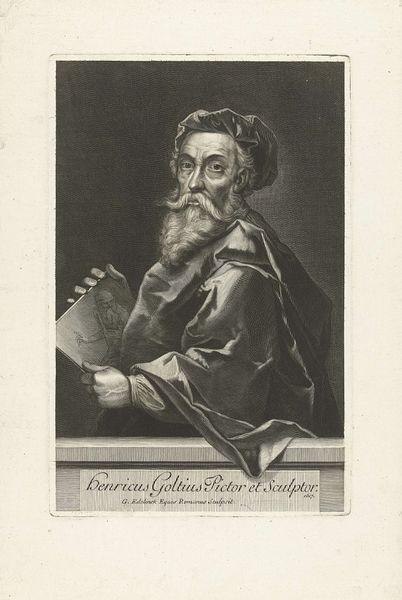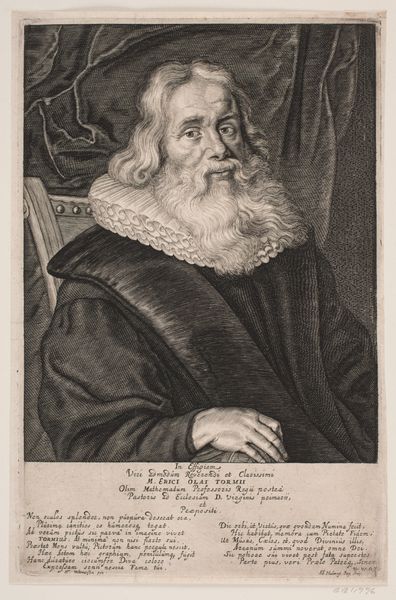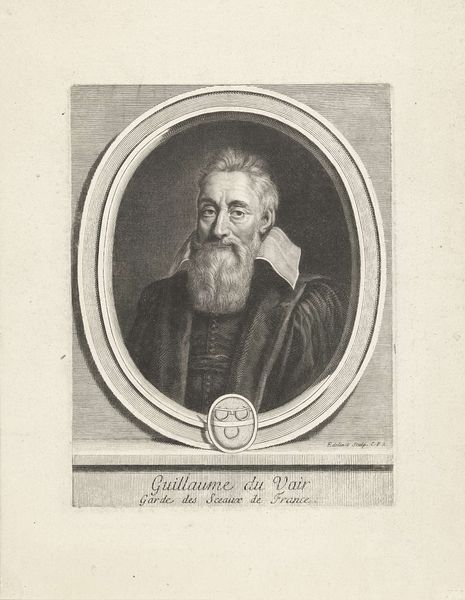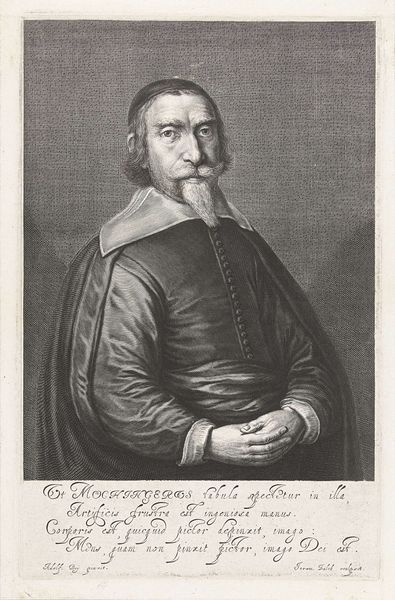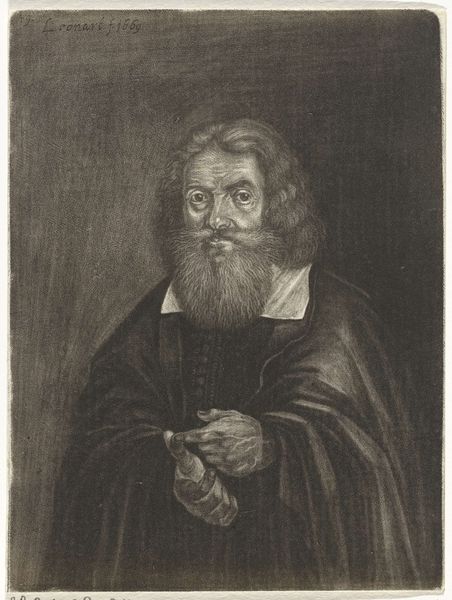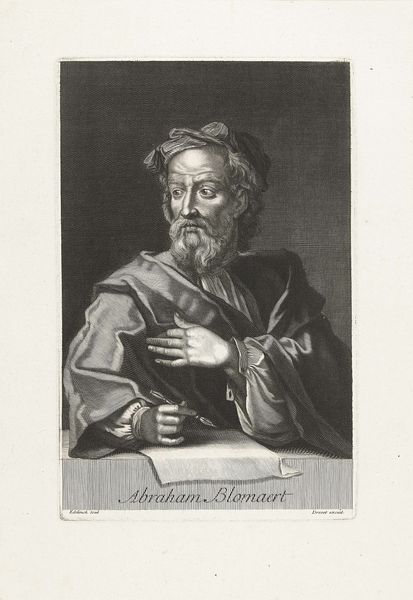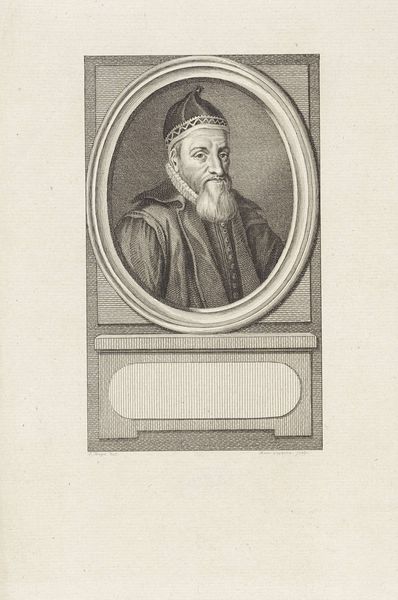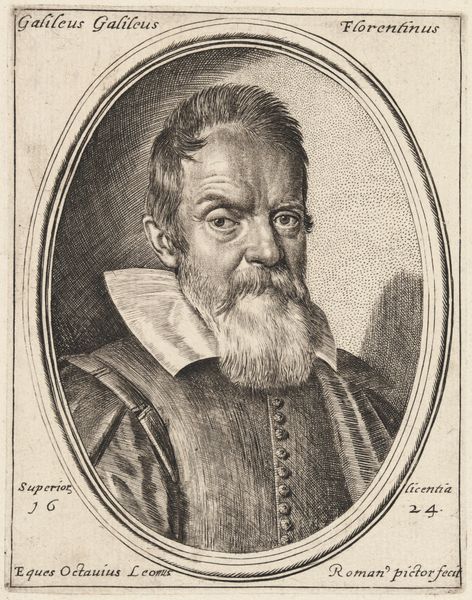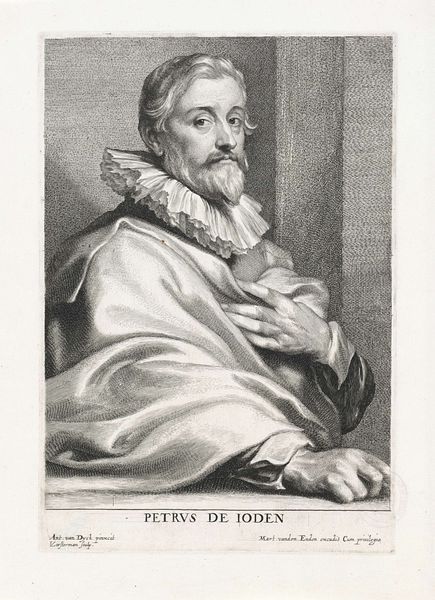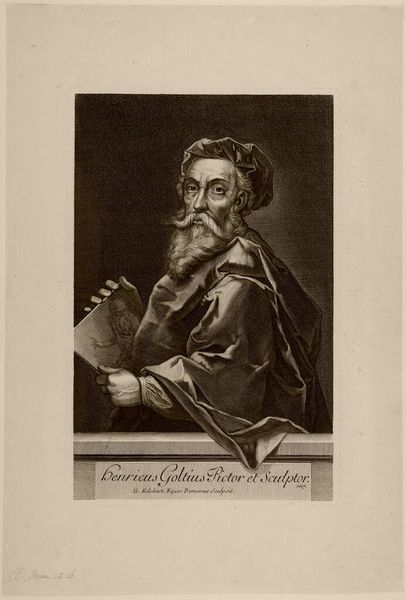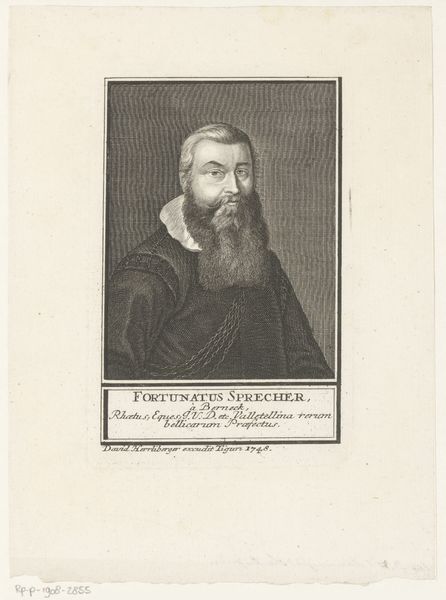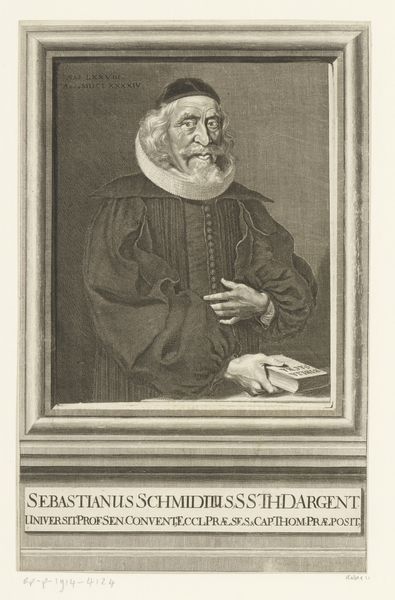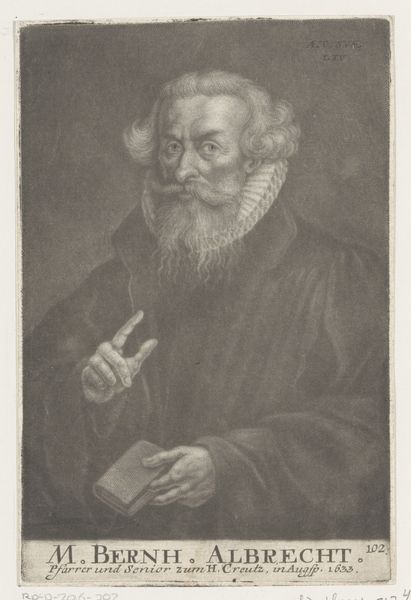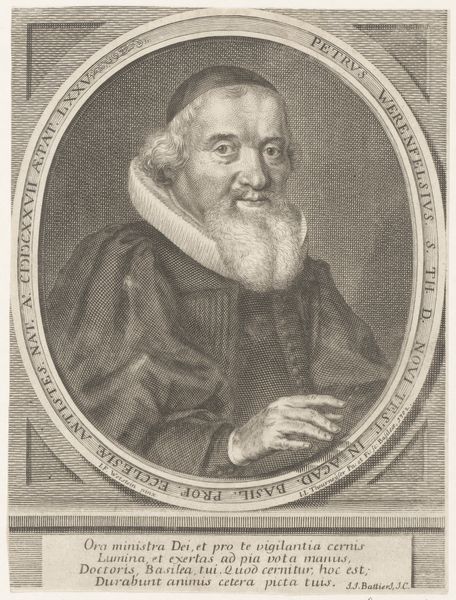
print, engraving
#
portrait
#
baroque
# print
#
history-painting
#
graphite
#
engraving
Dimensions: height 322 mm, width 208 mm
Copyright: Rijks Museum: Open Domain
This is a portrait of Pierre van Bouc, made as an engraving by Gérard Edelinck sometime in the 17th century. This print gives us some insight into the institutional position of the artist. Here, Van Bouc is not depicted in the garb of a tradesman, but in classical robes. The upward-pointing finger suggests divine inspiration and elevates the artist’s status. The name ‘Van Bouc’ is presented on a plinth as if he were a figure of sculpture, placing the artist in the realm of the ancients. The display of his palette is also significant: art academies in the Netherlands, and indeed across Europe, were intent on establishing painting as a liberal art, rather than a craft. The historian of art can help us to understand how cultural institutions like the academy influenced the way artists perceived themselves. Catalogues, biographies, and theoretical treatises would shed further light on the dynamics of the art world in the 1600s.
Comments
No comments
Be the first to comment and join the conversation on the ultimate creative platform.
